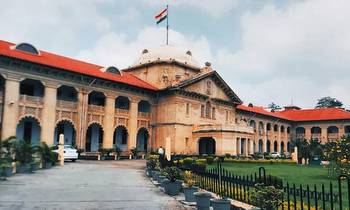Delhi HC dismisses Petition seeking ban on online gambling sites

Earlier this week, the Delhi High Court dismissed a petition requesting the court to ban online gambling websites operating in the National Capital Territory and other states.
The petitioner challenged various websites that allegedly allow anyone to sign up and play their games, but later coerce users into spending money on them. The petitioner added that the games offer the opportunity of betting on an outcome that is entirely based on luck, and outside of the player’s control.
During the proceedings, the Indian government’s counsel drew the court’s attention to 2009’s Information Technology (Procedure and Safeguards for Interception, Monitoring and Decryption of Information) Rules. The government pointed to various provisions, for example, rule 3, prohibiting the monitoring, interception, or decryption of online information without an order issued by a competent authority. Additionally, under rules 4 and 5, the competent authority can issue decryption orders, or authorise government agencies to intercept, monitor or decrypt information. Finally, under rule 10, the interception, monitoring, or decryption orders should specify the name and designation of the authorised agency’s officer to whom the information will be disclosed.
In their December 19th order, Acting Chief Justice Manmohan and Justice Mini Pushkarna found that the petitioner hadn’t filed any legal representation with the Indian government, nor approached the nodal or designated officer established under the 2009 rules. While disposing of the case, the Bench directed the designated officer, appointed by the IT Ministry in compliance with rule 5 of the 2009 rules, to treat the petition as a representation and settle it according to the law.
“This Court clarifies that it has not commented on the merits of the controversy,” the order added. “The rights and contentions of all the parties are left open.”
What’s the case about?: A victim of such a website herself, the petitioner added that users only realise that they’re stuck in a “vicious cycle” once they reach an advanced stage of the game. At this point, there’s no going back, and they lose their “hard-earned money”. The websites mentioned in the order included jeetwin.com, oppabet.com, lotusing.com, diam247.com, world777.com, probate777.com, pooabet.com, and coexch9.com.
The petitioner claimed to have informed a police station in Telangana’s Hyderabad of the actions of these gambling sites. However, the police allegedly offered her money to drop the issue.
What does the regulatory framework for gambling look like?: State government have constitutional powers to regulate ‘gambling and betting’. As we’ve , while many have outlawed gambling, some have kept the door open for economic reasons. On the flip side, similar to the petitioner’s arguments, many online real money gaming industry groups (representing companies offering non-gambling games) argue that these offshore gambling websites harm Indian citizens.
Additionally, when bringing rules to regulate online real money gaming earlier this year, the Indian government included a provision that disallows platforms from hosting games that aren’t recognised by private regulatory bodies, or from hosting ads for them.
“The draft empowers the Government of India, via MEITY, to take the necessary steps to determine if an online platform is a gaming platform or a betting platform and accordingly initiate immediate action against betting platforms particularly the offshore betting platforms under section 69(a) of the IT Act,” gaming platform Winzo’s Paavan Nanda noted at the time. Section 69A empowers the government to block public access to online content on various grounds, including public order, etc.
“Intermediaries such as hosting providers, news websites, social media websites, search engines etc. cannot host any game that is not recognised as a permissible online game by a self-regulatory body (primarily targeted at offshore betting portals) and cannot publish any advertisement or surrogate advertisement or promotion of an online game that is not a permissible online game (i.e. gambling/betting games or platforms),” technology lawyer Jay Sayta added at the time. “The new rules are therefore expected to curb the menace of illegal offshore betting and gambling websites and their surrogates that are openly flouting the law and advertising through various means. The new rules would help in stopping promotional content of offshore betting websites and pave the way for swift blocking of domains and websites/apps engaged in illegal gambling or betting.”











![[The Viewpoint] Online Gaming to follow New IT Rules](/img/di/the-viewpoint-online-gaming-to-follow-new-it-rules-1.jpg)





















